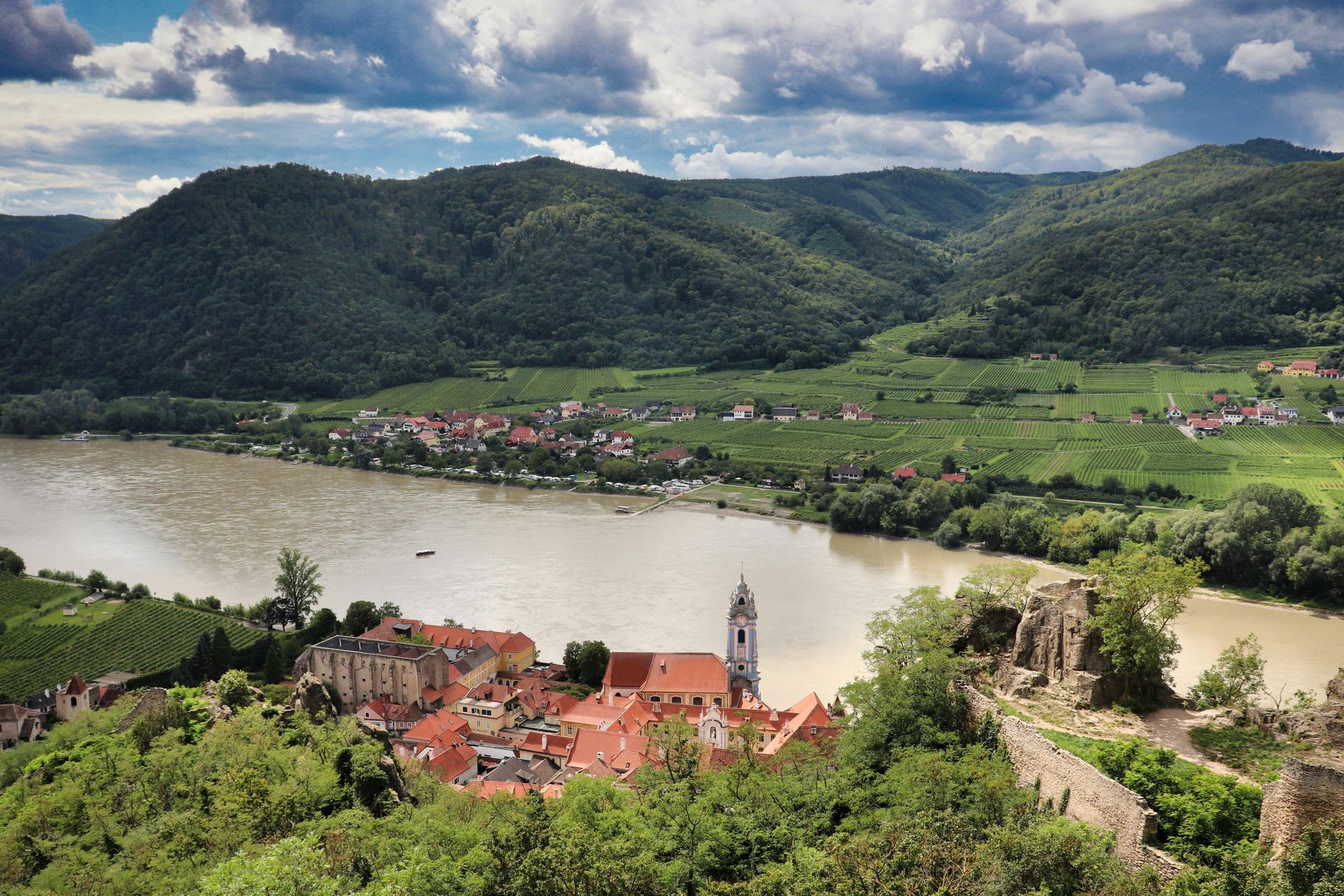Austria
Capital: Vienna
Population: about 9 million
Time zone: CET
Airline: Austrian Airlines
Weather
The four seasons are distinct in Austria. Summers are warm with temperatures reaching 30°C, while winters are cold and snowy, perfect for skiing. Spring and autumn offer milder temperatures and beautiful colors.
Language
The official language is German. The dialect varies depending on the region. Many Austrians also speak English, especially in tourist areas. However, a few phrases in German are always appreciated, such as "Guten Tag", "Danke" and "Servus"!
Currency
1 € = 1.08 $
Austria's currency is EUR (Euro). Card payments are common, but it's always good to have some cash on hand for smaller purchases and markets. ATMs are available in many places in most cities.
Pass
Austria is a both EU and a Schengen country, which means EU citizens do not need a visa to enter. A valid passport or national ID card is sufficient. Always check the latest travel advice.
GOOD TO KNOW BEFORE THE TRIP
Facts about the destination
Passport and visa
Austria is part of the EU and the Schengen area, which means that Swedish citizens do not need a visa to travel there. A valid passport or national ID card is sufficient as a travel document.
For minor Swedish citizens, the same rules apply as for adults, but it is always recommended to check with the airline regarding any special rules for unaccompanied minors or children traveling with one parent. Please note that entry regulations can change at short notice, so you should always check the latest information at www.swedenabroad.com before traveling.
Weather and climate
Austria offers a varied climate with four distinct seasons. Summers are warm and sunny, perfect for hiking and cycling in the Alps. Winters are cold and snowy, attracting skiers from all over the world. Spring and autumn offer milder temperatures and beautiful colors, ideal for those who want to experience Austria's charm at a slower pace. Pack light, but don't forget sunscreen in the summer and also a rain jacket as the weather can be changeable. Closed, sturdy shoes are always a good idea when traveling. No matter when you go, be sure to check the weather forecast before you travel and pack accordingly.
Telephone and internet
The country code is 43.
Austria is part of the EU and therefore the prices for calling there should be the same as at home in Sweden. However, keep in mind that it can be expensive to both make and receive calls on your mobile phone when you are abroad. Contact your mobile operator for pricing and more information. It may be a good idea to turn off the data traffic and voicemail function, if your phone has these options, as otherwise there may be expensive additional costs. Access to wi-fi is usually available in hotels, restaurants and sometimes also in our partners' buses. In rural areas, the connection may be worse.
Electricity
Austria has 230 volts of voltage and the standard frequency is 50 Hz. In hotels, public environments or in private homes the same type of electrical outlet is used as in Sweden, no adapter is needed for Swedish travelers.
Best travel period
During spring/early summer (April – June) and autumn (September – October) the weather is most pleasant, but sun trips during the summer months can also be enjoyable, as well as ski trips during the winter months.
Vaccination
Healthcare in Austria is of a high standard and you do not need any special vaccination coverage as a Swedish traveler. TBE vaccine is recommended in some areas. Bring your EU health insurance card for any emergency care. Make sure you have travel insurance that covers medical expenses and any repatriation. If you have any chronic illnesses, bring a medical certificate in English.
Language
German is the official language of Austria. There are minority languages such as Hungarian, Croatian and Slovenian, especially in the southeastern parts of the country. The Czech Republic and Slovakia are also geographically and culturally very close to Austria, and these languages can also be heard often in various contexts. As a visitor, you can get by well with English in the larger cities and among the younger residents.
Currency & tips
In Austria, the Euro (EUR) is used. Card payments are common, but it is always good to have some cash on hand for small purchases and markets. ATMs are available in most towns and villages.
Tipping is not mandatory, but is appreciated. It is customary to tip 5-10% in restaurants and bars if you are satisfied with the service. Even in taxis, you can round up the amount.







